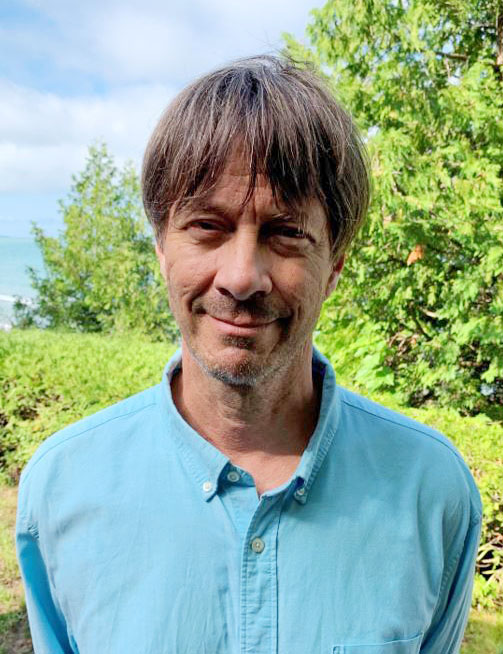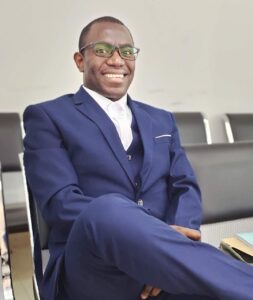York University has announced Doug Anderson and Jean de Dieu Uwisengeyimana as this year’s recipients of the Provost’s Postdoctoral Fellowships for Black and Indigenous Scholars.
The Provost’s Postdoctoral Fellowship program seeks to attract outstanding scholars who will push the boundaries of knowledge in necessary ways. With a salary of $70,000 provided each year for a two-year term, award recipients will be able to dedicate their time to pursuing a proposed project, working alongside a supervisor and other mentors.
“This program allows York to promote and develop some of the most exciting, cutting-edge research that will shape the next generation of scholarship, by supporting the remarkable scholars who are producing it,” says Alice MacLachlan, vice-provost and dean of the Faculty of Graduate Studies. “One theme that emerges from the innovative research being produced by this year’s scholars is connection – whether between learners and the land, or in artificial neural networks – and we are delighted by the connections they will be able to nurture among our dynamic community of researchers.”
While gaining a foothold to begin a career can be difficult in itself, Black and Indigenous scholars face the additional challenges of racism and systems structured to protect others’ privilege. This fellowship begins to address this issue by providing collegial resources, supervision, mentorship and funded time to successful applicants to help them become successful in their chosen careers.
Doug Anderson

Anderson is completing his PhD in education at York University. His project, “Inaakonigewin Akinomaagegamig,” addresses how Indigenous principles can begin to define and orient the resources in education systems in ways that benefit the work of sovereign Indigenous learning and resurgence in the land.
“I will bring my emerging academic focus under the direction of the Memtigwaake Kinomaage Mawnjiding Advisory Circle, now managing over 20 acres of land in Toronto as a learning space grounded in Indigenous ceremony, sovereignty and laws. This land hosts cyclical, perennial culture and language learning for Indigenous students in ways that are at the core of how learning and site management proceed,” shares Anderson. “I will work to support Indigenous students and partners to have this culture-based learning recognized by Toronto school boards and focus on how the learning can be supported through post-secondary institutions, all in ways defined by Indigenous people and principles. I am grateful for the support of doctors Deb Danard, Steve Alsop, Kate Tilleczek and Deborah McGregor in this work.”
Jean de Dieu Uwisengeyimana

Uwisengeyimana holds a PhD in biomedical engineering from the University of Science & Technology of China. His cutting-edge project will focus on developing video-based, biologically inspired, artificial neural networks for dynamic scene understanding. Uwisengeyimana will be affiliated with York’s Vision: Science to Applications (VISTA) program, which aims to advance vision and produce applications that generate positive health, societal, technological and economic impacts for Canada and the world.
“I express my sincere appreciation for the opportunity to pursue a Provost’s Postdoctoral Fellowship at York University, which will allow me to conduct cutting-edge research to develop computational models of visuocognitive tasks,” says Uwisengeyimana. “I will work on this project under the guidance of Dr. Kohitij Kar, a VISTA program core member and faculty member. I appreciate that Dr. Kar is actively interacting with industrial (e.g. Google Brain Toronto) and academic (e.g. the Massachusetts Institute of Technology, Harvard) partners to provide me with high-quality networking opportunities to help me advance my career.”
Learn more about the Provost’s Postdoctoral Fellowships for Black and Indigenous Scholars at York University by visiting the Faculty of Graduate Studies website.


